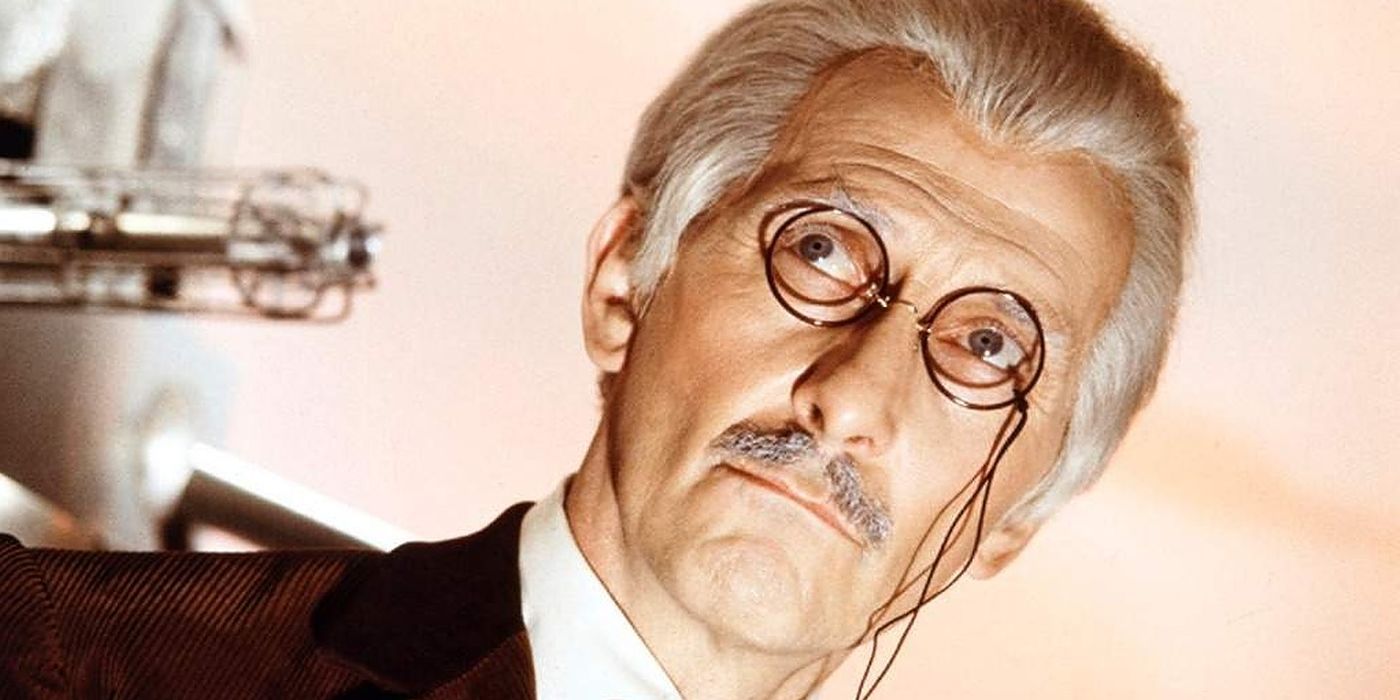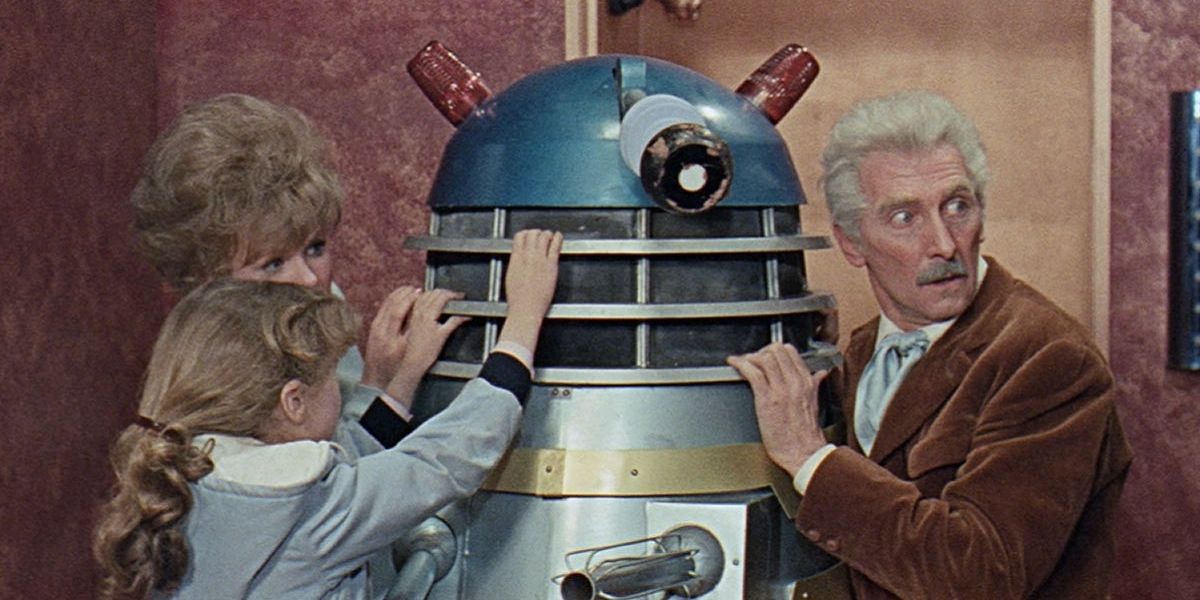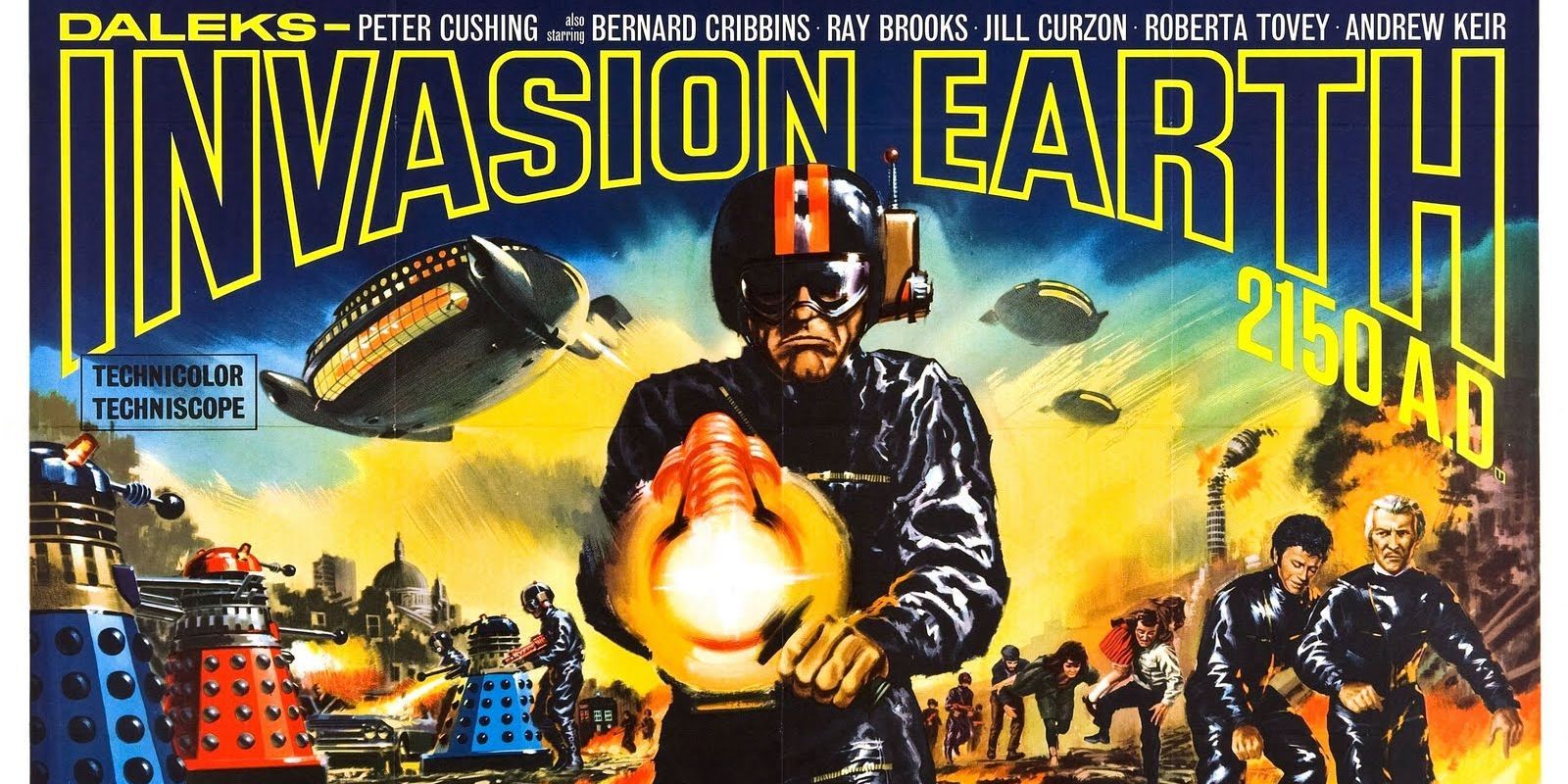Over the past half-century, Doctor Who has garnered a passionate fan base that crosses multiple generations. Even the youngest Whovians pay homage to all 13 official television incarnations of The Doctor, from the original played by William Hartnell to the current one played by Jodie Whittaker. Even the 8th Doctor, played by Paul McGann, is supported as a canon Doctor, despite only appearing in a 1996 TV movie.
However, there's one unofficial Doctor plenty of fans are unaware of, and it isn't John Hurt's War Doctor. In the mid-1960s, only a couple of years after the original series' premiere, BBC made two Doctor Who feature films titled Dr. Who and the Daleks and Daleks' Invasion of Earth 2150 A.D. Despite the TV series having the original Doctor, played by Hartnell at the time, the studio decided to cast Peter Cushing in the role.
While Cushing is an acting icon thanks to performances like his Grand Moff Tarkin from Star Wars, and he would have made a worthy Doctor, he is still not considered The Doctor in the canon of the TV series. McGann may only have his TV movie, but the 7th Doctor actor, Sylvester McCoy, still appeared in it to regenerate into the 8th Doctor, connecting McGann's doctor to the series. However, in the case of the '60s movies, there is no Hartnell appearing to regenerate into Cushing.
Not only is Cushing's Doctor portrayed as the original in the films, but he's characterized as a human who invented the TARDIS, instead of being a Time Lord who always had it. The first movie, Dr. Who and The Daleks, is actually an adaptation of the second serial in the series titled "The Daleks." It was this particular serial which introduced the Dalek characters and helped the series gain popularity in England. However, in the film Cushing has two grandchildren, as opposed to one, and the design of the Daleks was altered for the big screen.
The sequel, Daleks' Invasion of Earth 2150 A.D., was also a remake of a serial from the television series called "The Dalek Invasion of Earth." While Cushing came back to play The Doctor, he fell ill during production and his screen time decreased as a result of it. The Daleks became the focal point of the movie, to the point where Cushing's Doctor is not mentioned in the title and is barely advertised in the marketing. Another Dr. Who Dalek movie was planned, but the poor box office results led to the project being canceled.
Despite the Cushing movies fading into obscurity as the television series continued to thrive, longtime Doctor Who showrunner Steven Moffat decided to pay homage to them. "The Day of The Doctor" special arrived on the day of the 50th anniversary of Doctor Who's premiere, and Moffat wrote a scene explaining that. Although, Cushing was not an official Doctor, the movies themselves exist in universe and were even authorized by The Doctor himself.
A scene explaining that would have made the special and featured posters of the two movies, but Moffat and BBC couldn't afford the rights to the posters. However, the scene is included in the novelization of the special, where Kate Stewart of the organization UNIT tells The Doctor's companion, Clara, about the Cushing movies.
"Seen them? [The Doctor] loves them," Stewart says. "He loaned Peter Cushing a waistcoat for the second one; they were great friends."
Cushing may not be an official Doctor, but his films were preserved by Moffat in-universe and have a small spot in the epic history of Doctor Who. With the franchise being more popular than it's ever been over the past decade, a revival of the Cushing universe doesn't sound too ludicrous.
While the television universe of Doctor Who is enriched with a half-century of stories, the cinematic universe of The Doctor remains just those two films. In a time where multiverses are being embraced by the mainstream, Doctor Who would be the perfect franchise to embrace this concept. A continuation of the Doctor Who cinematic universe could create some potentially great films for Whovians, and since Cushing's Grand Moff Tarkin was computer generated in Rogue One, they could do the same for his Dr. Who briefly before regenerating him into the next movie Doctor.



